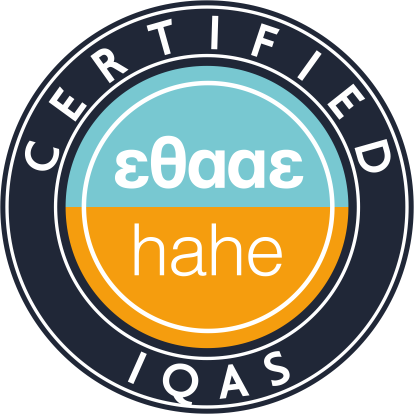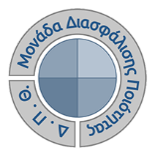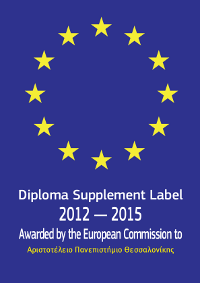Diploma Supplement
The Diploma Supplement is an explanatory document attached to undergraduate and postgraduate qualifications (degrees, diplomas, etc.). It does not replace the official degree certificate or the detailed academic transcript issued by higher education institutions. It is issued automatically in both Greek and English, at no cost. The date of issue does not necessarily coincide with the date of the degree award, but it can never be earlier than that.
The Diploma Supplement:
- a) is not a substitute for the original qualification, and
- b) does not automatically guarantee recognition of the qualification.
It is merely a supporting document providing additional information about the nature, level, and content of the studies completed by the student, as well as the knowledge, skills, and competencies acquired. It facilitates the understanding of these elements by higher education institutions, employers, and organisations both within Greece and internationally.
According to current legislation, the basic content of the Supplement is standardised across all Greek higher education institutions (Ministerial Decision Φ5/72535/Β3/18-7-2006 – Government Gazette 1091/B’/10-08-2006), as amended by the Ministry of Education (Government Gazette 2161/B’/08-11-2007).
The implementation of the Diploma Supplement was introduced in all EU member states following a European Parliament resolution (Decision No. 2241/2004 on a single European framework for the transparency of qualifications and competences), to ensure a unified approach to transparency in academic qualifications and professional skills. In Greece, it was adopted through Law 3374/2005, Article 15 (Government Gazette A’189/02-08-2005).
The Diploma Supplement follows the template developed jointly by the European Commission, the Council of Europe, and UNESCO/CEPES. Its purpose is to provide sufficient, independent information to improve international transparency and fair academic and professional recognition of qualifications (degrees, diplomas, certificates, etc.). It is designed to describe the nature, level, context, content, and status of the studies successfully completed by the individual named on the original qualification to which it is attached.
More information about the Diploma Supplement is available at:
http://europa.eu.int/comm/education/policies/rec_qual/recognition/diploma_en.html
Institutional Coordinator fot the Diploma Supplement at DUTH: Professor Maria Michalopoulou
What the Diploma Supplement Offers
To Students:
- A document that is easily readable and widely recognised abroad
- A clear and accurate description of their academic achievements and the knowledge, skills, and competencies gained during their studies
- Improved access to employment and further study opportunities
- Enhanced employability
To Higher Education Institutions:
- Facilitates academic and professional recognition of graduates
- Protects national/institutional autonomy while providing a commonly recognised European framework
- Increases the international visibility of the institution
- Promotes graduate employability both nationally and internationally
- Saves time by offering standardised information on the institution’s academic programmes and administrative procedures






